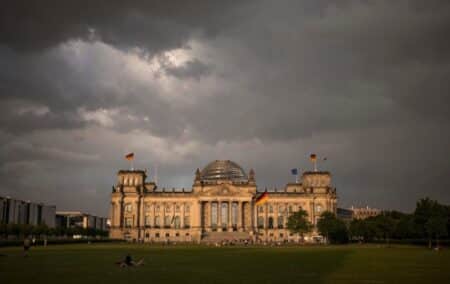Latest polls ahead of Germany’s general election next month show that a coalition consisting of at least three parties will be necessary to govern.
The election will be the first since 2002 to not feature current German chancellor, Angela Merkel, who will be retiring after this election, having served as chancellor since 2005.
Most polls have Merkel’s party, the Christian Democratic Union (CDU) and its Bavarian sister party, the Christian Social Union (CSU) as the biggest single largest bloc but with only about a quarter of the vote.
The Greens and the Social Democratic Party are fighting it out for second place, with each polling at about 20%.
The liberal Free Democratic Party (FDP) will likely secure fourth place and is polling at about 12%. The right-wing Eurosceptic Alternative for Germany (AfD) is snapping at the FDP’s heels and should win about one-tenth of the vote. Finally, The Left party, a hard socialist grouping, is polling at about seven percent but it could still fail to meet the 5% support threshold (in Germany a party can only enter Parliament if it wins at least five percent of the vote).
There are a number of possible coalition outcomes, the only certainty being that the AfD will be excluded from any governing coalition.
The CDU will likely emerge as the biggest party, but there is no guarantee that it will be the head of a governing coalition, meaning that for the first time since 2005, that party won’t be in charge in Berlin.

